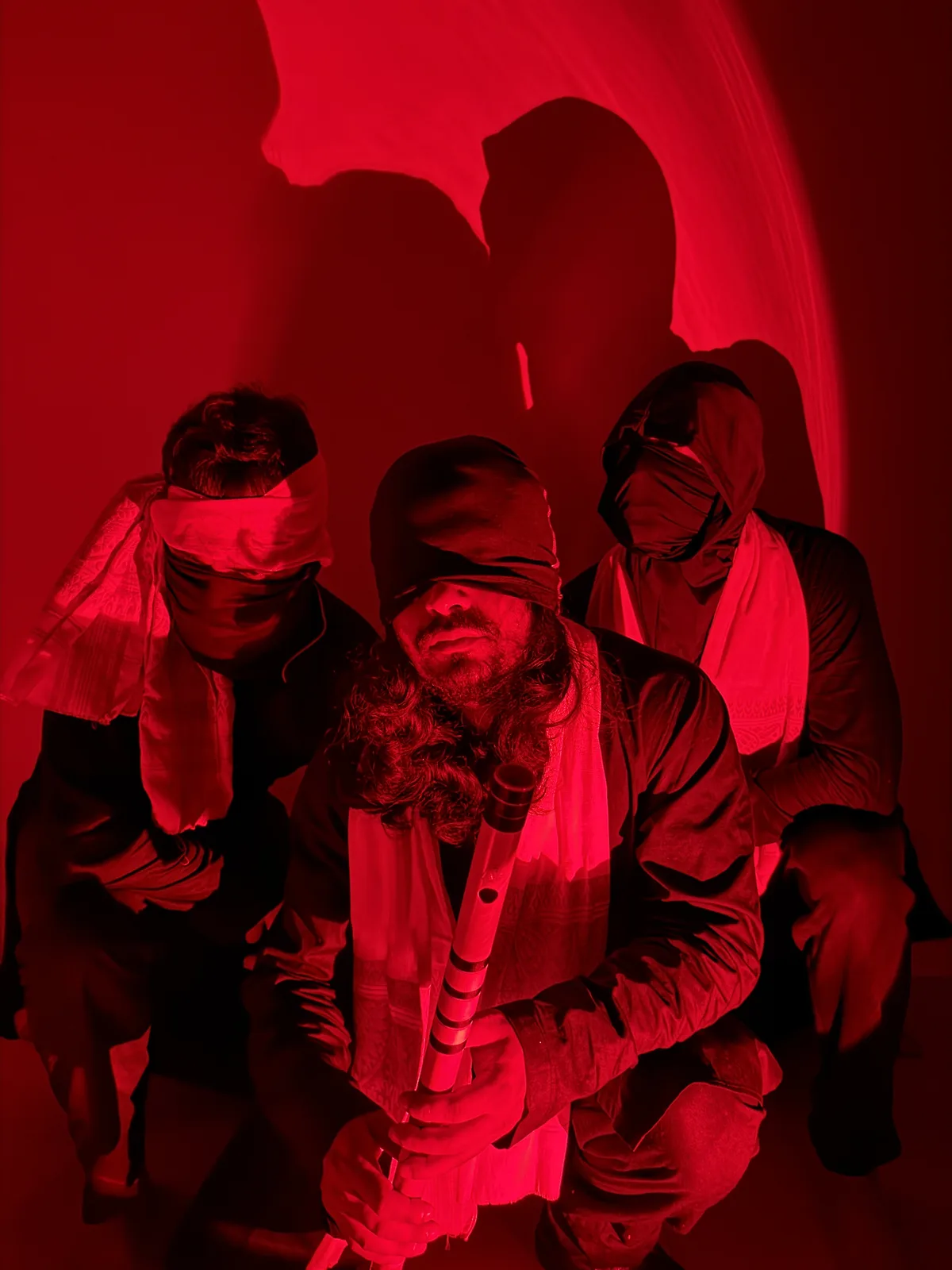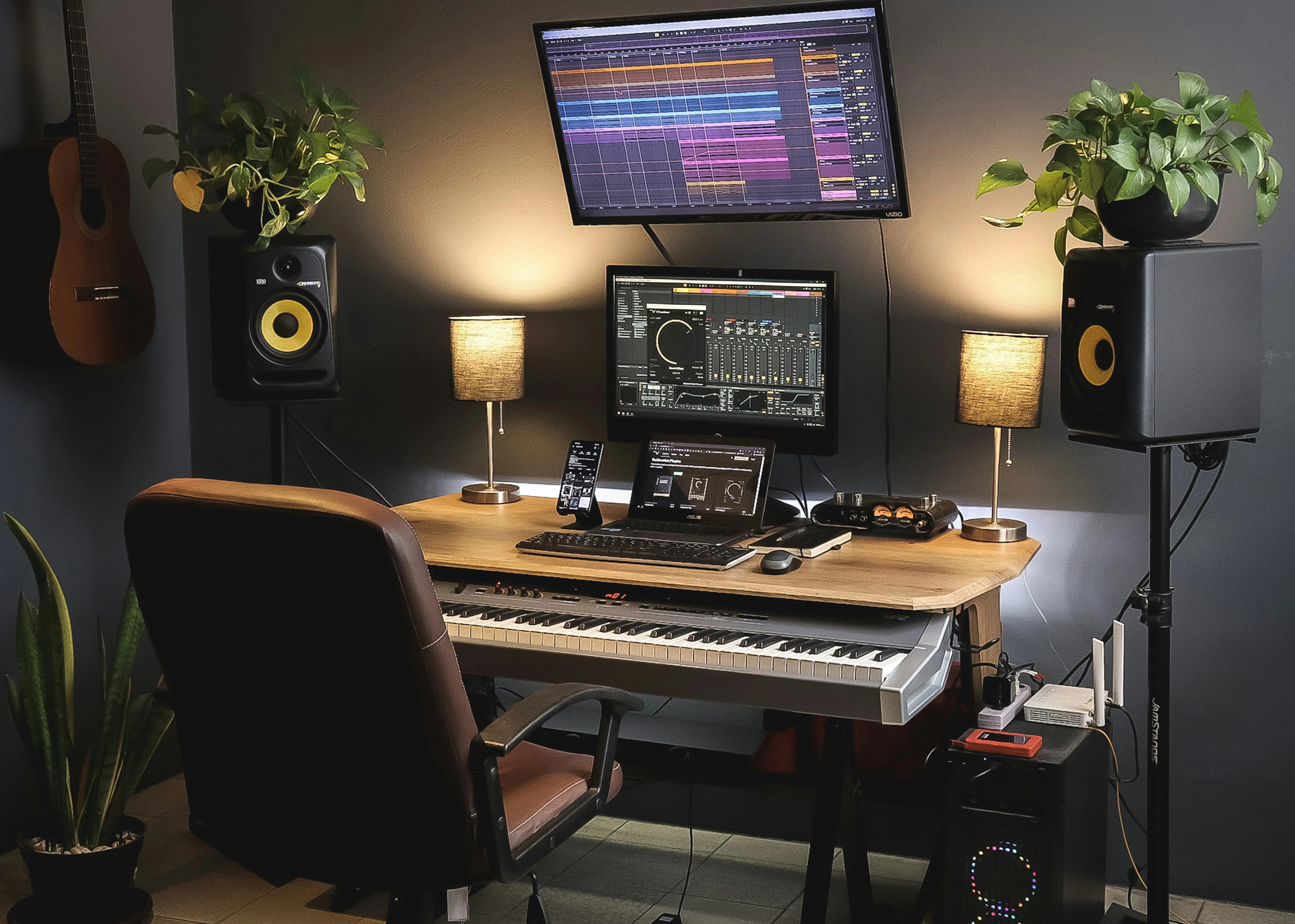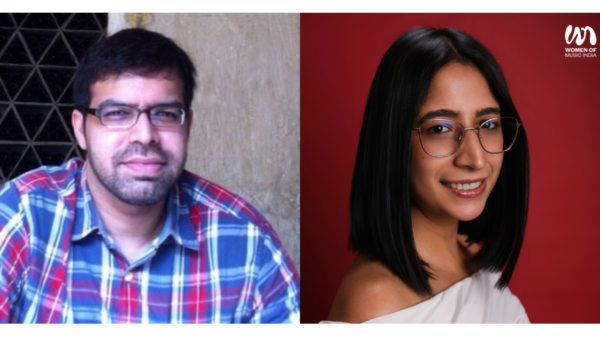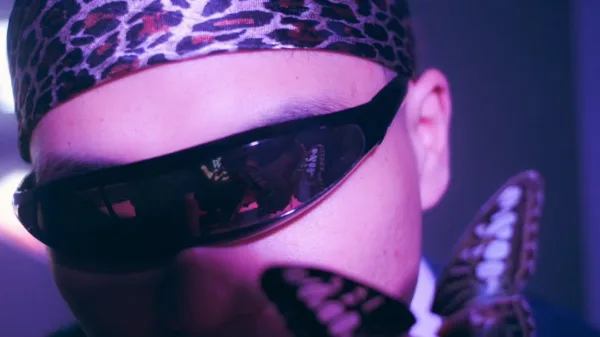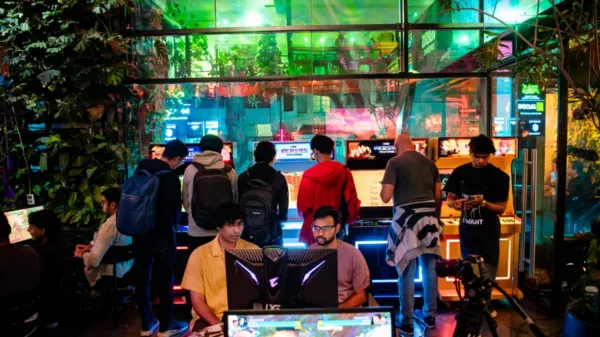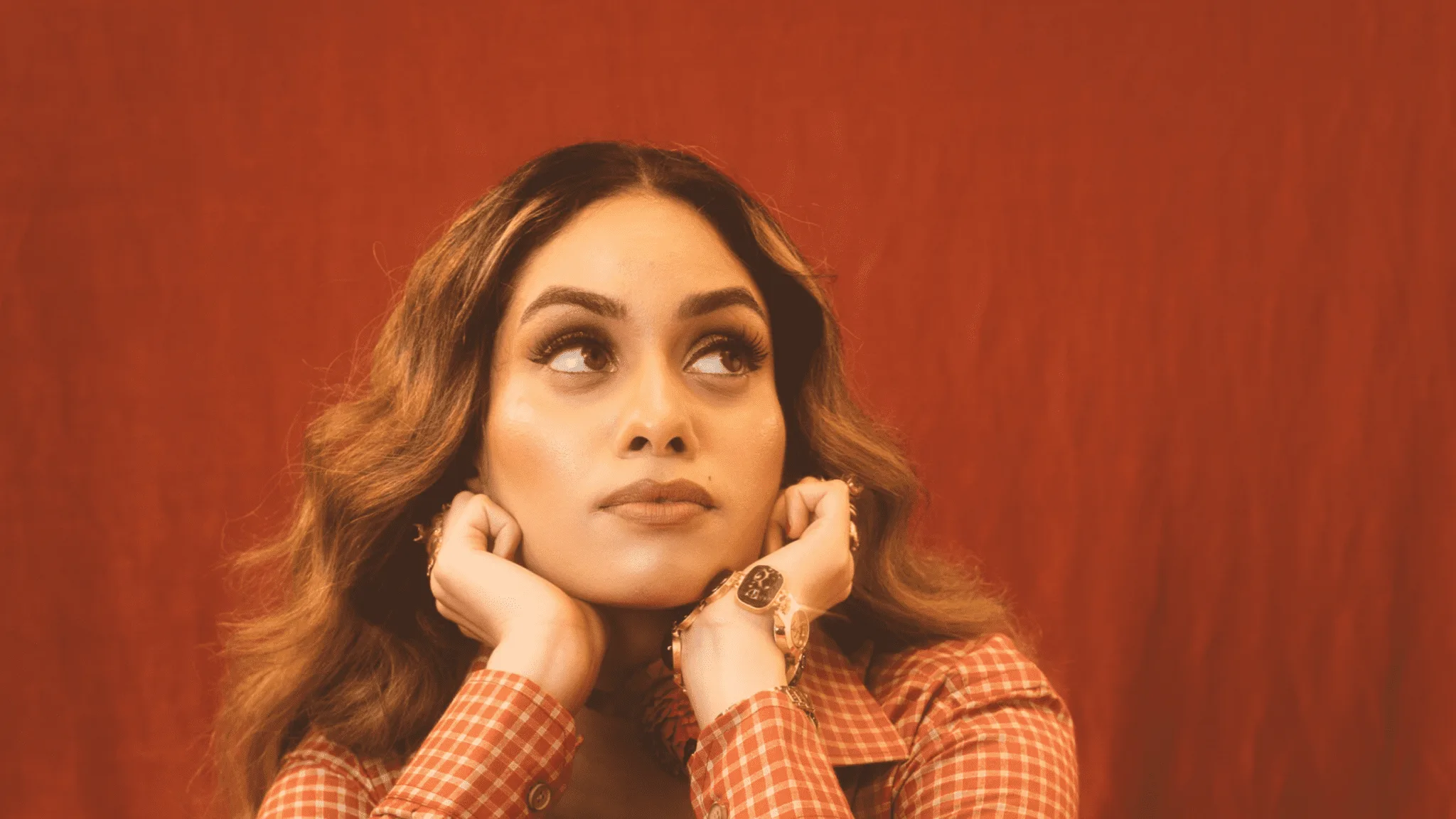I remember playing ‘I Wear My Roots Like A Medal’ on my speakers and being instantly wowed by the folk-fusion sonic palette. The grand rhythm section opens into an iconic synth swell that stays in impact long after the song ends. Then comes the protagonist. Dhee, aka Dheekshitha Venkadeshan who stormed into the global independent scene with a viral hit with a strong message her independent track “Enjoy Enjaami” truly redefined Tamil indie music, blending folk traditions with global sounds, currently standing at over 500 million views on Youtube and placing her in the spotlight as a force in contemporary music. Her musical journey spans the globe across cultures and musical styles. The virality of her music can be very well attributed to the authenticity and genuine expression that channels through her music; probably that’s when people really connect to the authenticity of the emotion, maybe that’s the key to viral success.
In this conversation with Dhee, we got to discuss about the many aspects of her life and music. The insights helped us navigate through her musical world and her views and thoughts on the challenges, uniquenesses and opportunities for Tamil Independent Music.
1. What has been some of your favourite music to listen to while growing up? How has that shaped your musical sensibilities?
I grew up listening to so many different kinds of music. I was around 5 or 6 when I begged my mum to get me the Destiny’s Child album because I heard it in my cousin’s car and fell in love with it. Destiny’s Child definitely did something to little Dhee. I also enjoyed listening to what my family would play, which was a lot of MSV, Ilaiyaraaja, and ARR. I fell in love with Nina Simone, Ella Fitzgerald, Carmen McRae, and Dinah Washington, and to this day, I start most of my mornings listening to them. I listened to a lot of hip hop, and that really inspired my approach to storytelling.
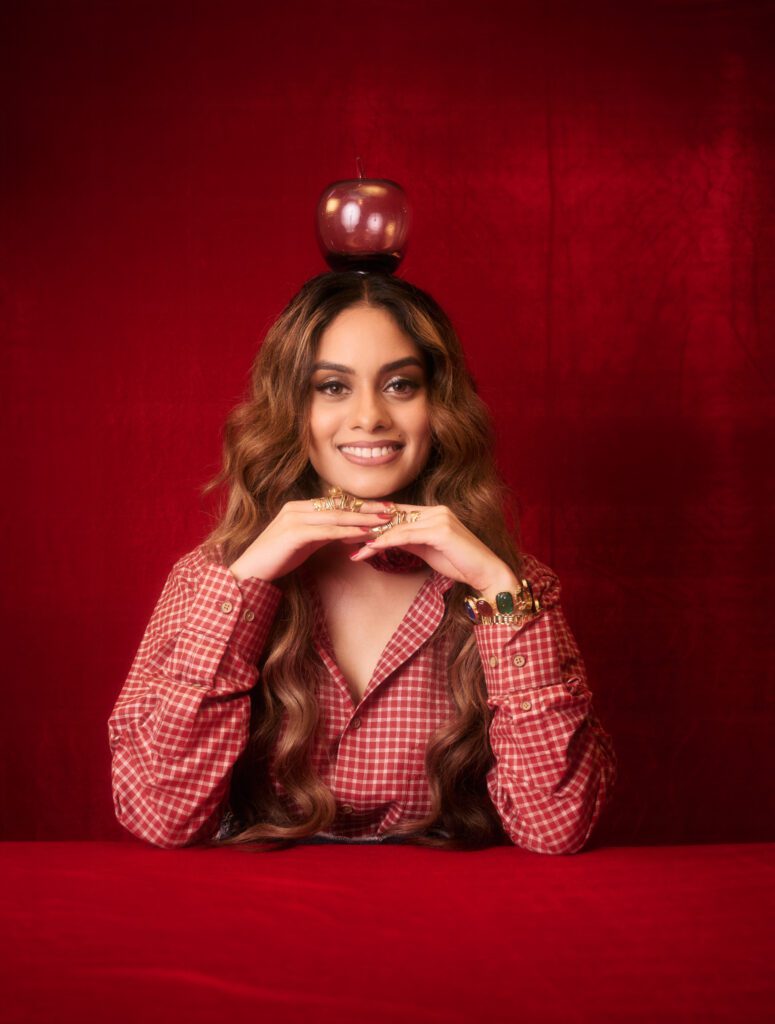
2. From Sydney to Chennai, how was the change in terms of musical landscape around you?
Sydney is where it all started for me—my love for singing and making music began here, and it’s always going to be such a big part of who I am. It’s home, and everything I carry with me comes from here.
In Chennai, I met so many people and made friends with so many musicians who’ve inspired me immensely. I fell in love with Gaana and Tamil folk music. There is such incredible talent, and it’s one of those places you can never categorise or put in a box because there are so many people representing so many different things. I also feel like I can never be bored in Chennai because you go outside and there are thousands of stories you can hear and learn from. In Chennai, I spend so much of my time with one of my favourite musicians and people in the world, Santhosh Narayanan. He’s truly much my mentor and best friend. I’ve learned so much from him, both in music and in life, and that’s a huge privilege and blessing.
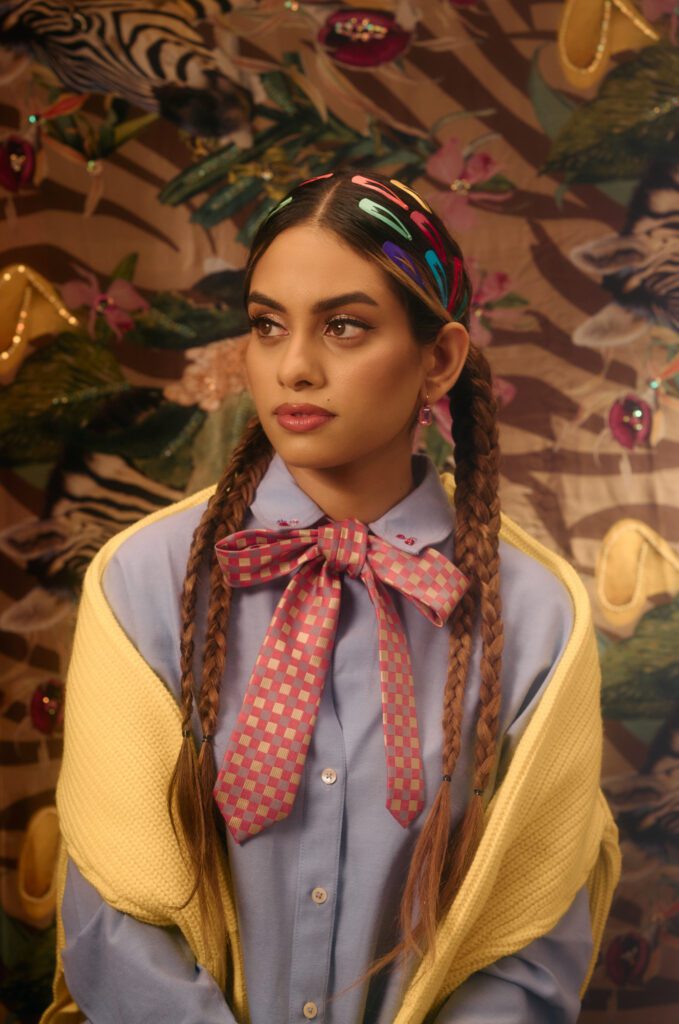
3. What are some of the most fun or significant recording sessions you’ve had? Could you go into the process of that experience?
I feel like a lot of the recordings I’ve done have always been fun or significant in some way, but my first-ever recording is definitely a core memory for me. I was 14 or 15 and at a studio in Sydney called Studio 301. I’d never been in a studio before, and I was so happy to just be in a place where music was happening and musicians were around. It honestly felt like a dream come true—literally like a kid in a candy shop.
I had no clue what I was singing for, but I was just so happy to be singing. I sometimes get nervous during film recording sessions, but I had zero nervousness that day—I was just so happy to be there. It was a song from one of SaNa’s earliest movies. I don’t remember much except the whole experience was so much fun. He was so kind and such a hypeman, and it felt validating because it came from someone I respected and admired so much. He made it such an amazing experience that I knew right then I wanted to do this forever.
4. How do you approach the performance aspect, and how do fashion and art design contribute to your creative expression in shows like Neeye Oli or your music videos?
I love performing, and I love everything that goes into preparing for a show or a performance. It stresses me out and terrifies me, but it’s still my favourite thing to do. I’m super curious, so I enjoy being involved in and learning every part of the process, be it the visuals, the fashion, editing, grading. I love doing anything creative and it makes me feel the most alive. I also think fashion is another way to tell a story and share your world. Plus, it’s something I have so much fun with while not taking it too seriously at the same time.
5. Who is ‘Karmaʼ as quoted in ‘I Wear My Roots like A Medalʼ? Can we go into how the symbolisms and narratives that shaped the development of the song?
Karma, in this song, is basically a personification of an epiphany. It’s like having a conversation with God.
As for how this song started… I feel like so many years of feelings and thoughts have materialised in this song, so I’m finding it difficult to summarise. I was writing a song about the women in my life, specifically my grandma, who’s been through some truly terrifying things and remains such a compassionate, grounded human being. She’s come out of everything she’s seen full of light—and that had a ripple effect. Parallelly, I was writing another song about identity, and at one point, it felt like it all came from the same place: your roots.
The actual song started with the beat. We recorded the band (Buddhar Kalaikuzhu, Rajamelam Band Set) in an open field, without a metronome, and this snippet came from an hour-long session. I heard this syncopation during the recording and immediately fell in love with it. The first thing I told Santhosh appa was, “I can picture Beyoncé walking to this beat,” which, for me, meant it was epic and like the coolest thing ever. Later, I asked if I could make a song on the beat for my album, and he said yes. We worked on a Tamil folk-meets-Disney arrangement. I wrote the chorus first— “I wear my roots like a medal” —and then I revisited the song and finished writing it. It was one of the most liberating feelings I’ve ever had.
6. From being featured on NYC Times Square to being consistently viral on the charts, your music is being celebrated globally. What is next on your wishlist?
I have a long list of things on my wishlist, but the main one is that I really want to release the album and start touring. I’m really looking forward to that.
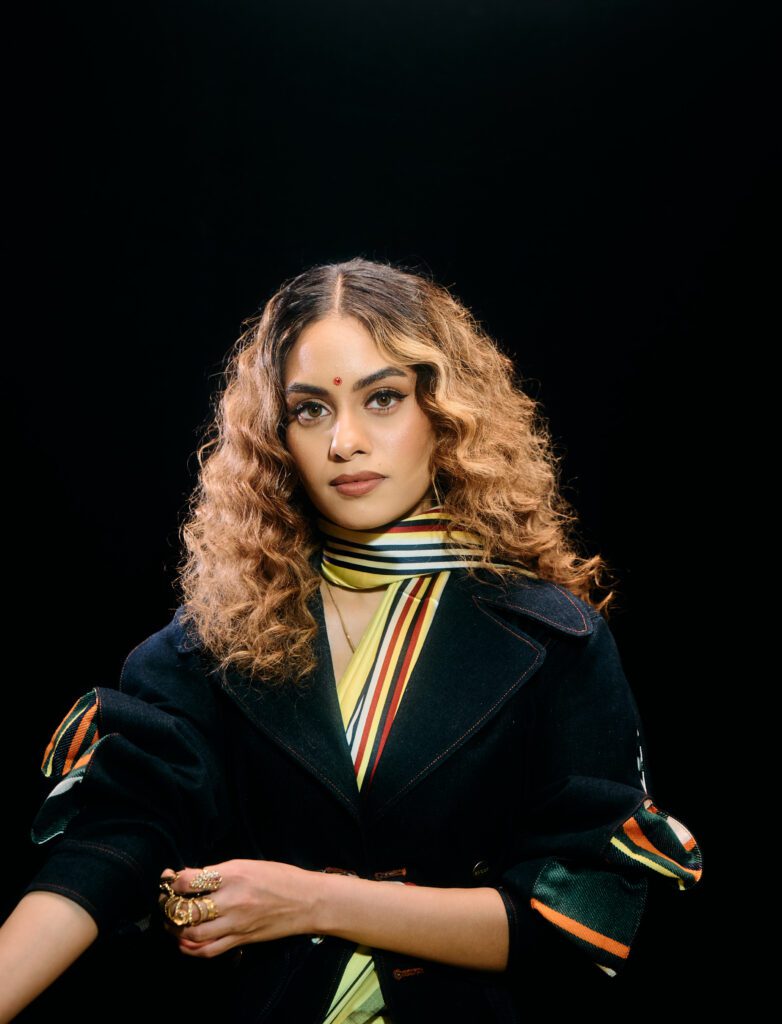
7. Could you tell us about the themes and sounds on your upcoming album Jackfruit?
A lot of the songs are diaristic. Some are inspired by my heritage and identity, while others are about growing up, love, and heartbreak. Home, and navigating what that means to me, is a recurring theme throughout the album. Sonically, there are a lot of cinematic influences. There’s a Tamil folk-meets-Disney sound throughout the album, and we’ve definitely paid homage to the kind of music I grew up listening to and was inspired by.
8. Your upcoming collaborators include national and international artists/producers like Wondagurl, Roy Woods, AR Rahman, Santhosh Narayanan, etc. Working with different producers, what changes, what stays the same in your experience?
Sometimes, some of these collaborations happen remotely, so that’s a bit different from working with someone in person, but it’s just as fun and creatively fulfilling. I think it’s always an exciting experience working with different musicians and artists, both in my own music and in playback. I’ve learned so much from everyone I’ve worked with—literally even things like how efficient they are at recording and capturing an idea, and their musicianship. Everyone’s creative process is different, and I love being able to see their process and learn something from it. What stays the same is why we’re both there, and the end goal is always the same: you want to create something that’s honest and meaningful, something you love, and you hope that people can see themselves in it too.
9. Can we talk in-depth about your upcoming collaboration with Diljit Dosanjh? How was the experience?
We have an unreleased independent song in the locker from a couple of years ago with Diljit Dosanjh and Roy Woods, produced by Santhosh Narayanan, and I love that song. Recently, the Baby John song was a really fun song to record, and it’s my first Hindi song. I’m so happy and grateful that it happened this way. Diljit sounds incredible on it, as always!
11. What are some of your favourite musicians from the independent scene currently, and what do you think about the current wins, challenges, uniquenesses of the space?
SVDP is an incredibly talented artist whom I deeply respect. Little Simz is a ray of hope for a lot of independent artists. Bruno Major is an incredibly talented musician and songwriter who I’m a fan of. The independent music scene is booming in India, and it’s redefining pop music in amazing ways. I think artists like Chaar Dhiwari and Asal Kolaar are incredible and bring something truly unique. Aditya Ravindran is one of my favourite musicians, and I’ve had an amazing time working with him on the album.
The challenges are still very real, and a lot of it comes down to sustaining a living by doing what you love. It’s also easy to fall into a rut, especially when you don’t have a strong support system. With TikTok and Instagram Reels being such huge factors in discovering new music, anyone and any song can become the next big thing in the world, which has been a game changer for everyone. The scene is growing, and it’s exciting to see how it’s evolving.
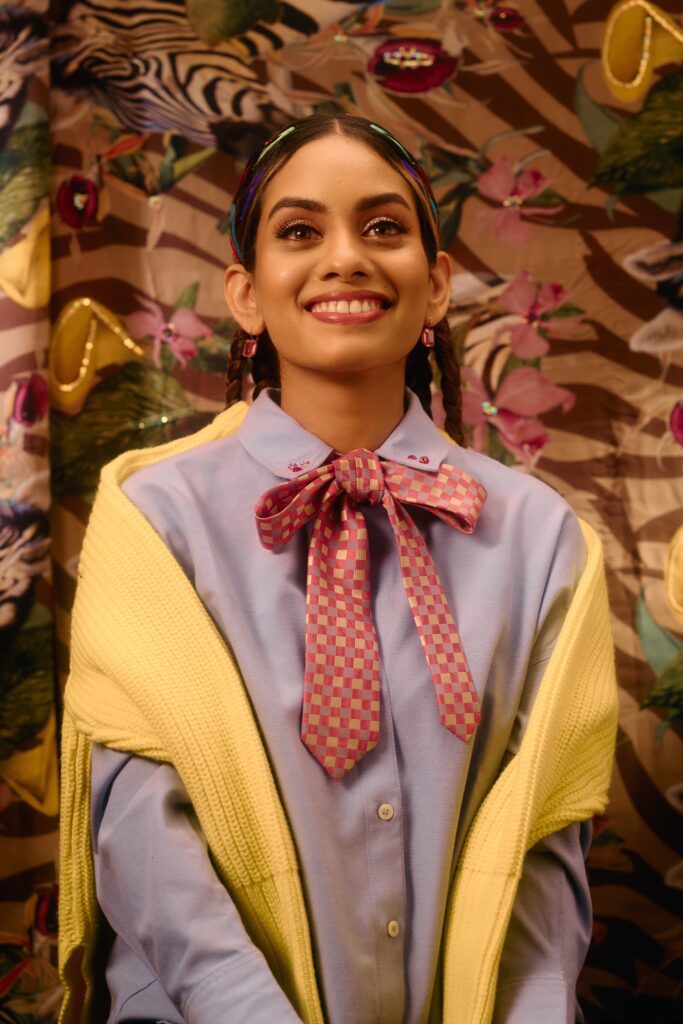
Credits : All photographs captured by MADHAVAN









